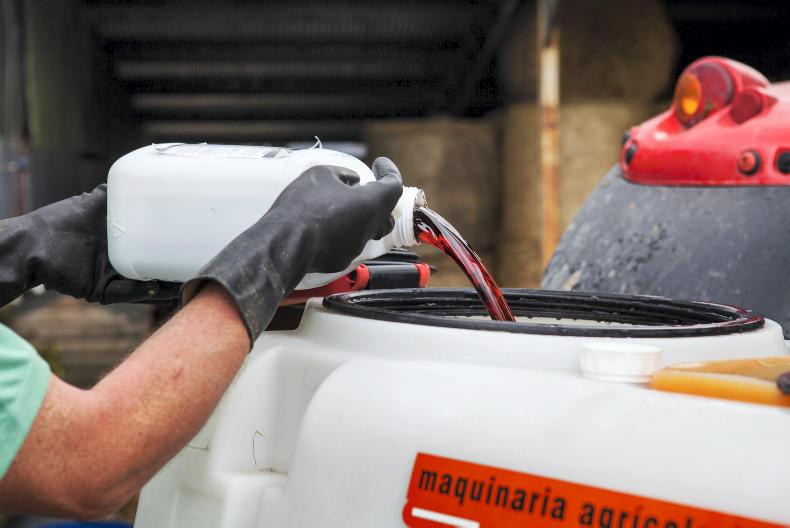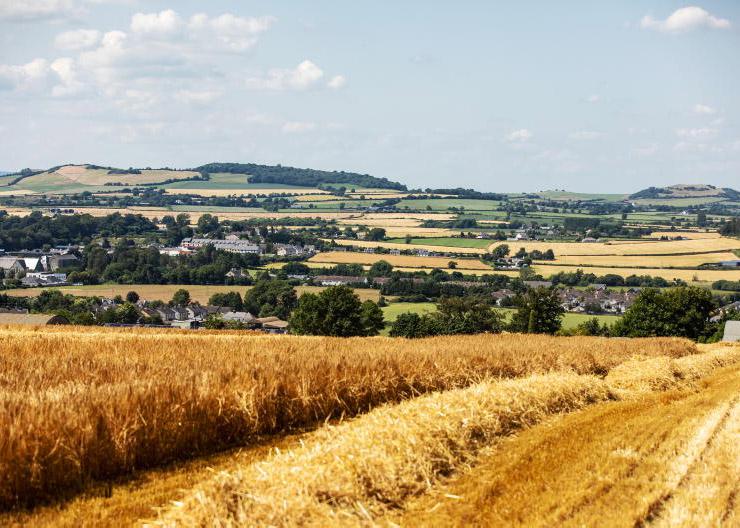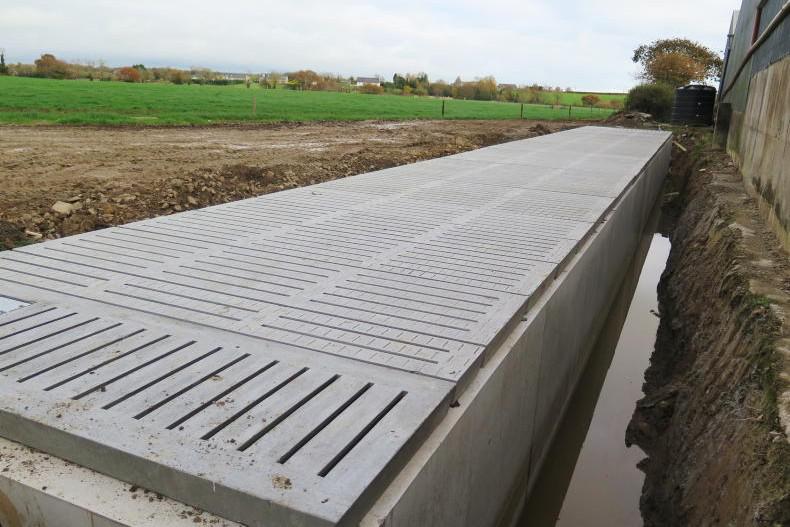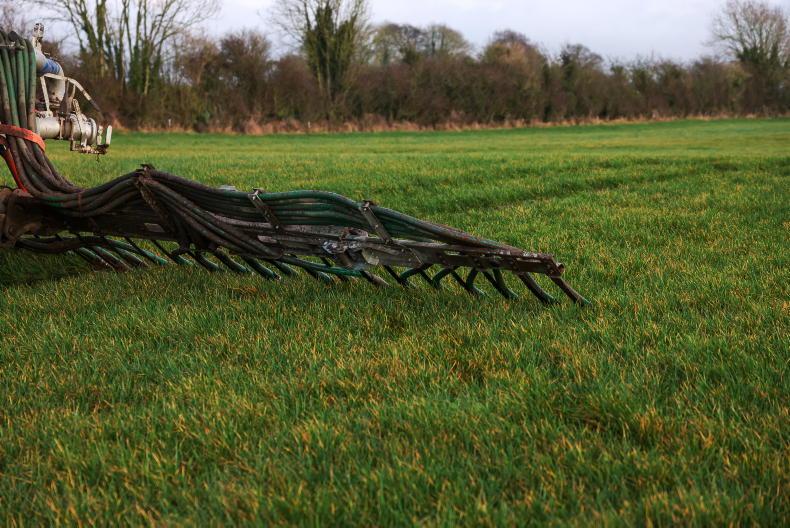Farmers and other users of pesticides have been urged by Irish Water to use best practice when spraying pesticide, with breaches increasing across certain counties.
As reported in this week's Irish Farmers Journal, the Department of Agriculture will be stepping up its inspection requirements for farmers using sprayers.
Drinking water supplies in Abbeyfeale and Newcastle West, Co Limerick; Longford Central, Co Longford; Kilkenny City, Co Kilkenny; and Belturbet and Cavan town, Co Cavan, are on an Environmental Protection Agency action list for 2019 due to MCPA breaching set limits.
MCPA accounted for 75% of all pesticide breaches in drinking water for 2018.
Clonroche’s supply in Co Wexford is on the action list due to Bentazone herbicide for beans and potatoes breaching limits.
While the breaches do not represent a threat to public health, Irish Water said it is imperative farmers adopt best practice when spraying to prevent pesticides entering the water.
Risk
Irish Water has published the following steps to reduce pesticide risk:
Choose the right pesticide product (note that products containing MCPA are NOT approved for use in weed-wipers).Read and follow the product label. Determine the right amount to purchase and use.Don’t spray if rain or strong wind is forecast in the next 48 hours.Make sure you are aware of the location of all nearby watercourses.Comply with any buffer zone specified on the product label to protect the aquatic environment. Mark out the specified buffer zone from the edge of the river or lake or other watercourse.Never fill a sprayer directly from a watercourse or carry out mixing, loading or other handling operations beside a watercourse.Avoid spills, stay well back from open drains and rinse empty containers three times into the sprayer.Store and dispose of pesticides and their containers properly.Stringent
Regulations are so stringent that a single drop of pesticide is enough to breach the drinking water limit in a small stream for up to 30km.
Efforts to reduce the incidence of detections are being coordinated by the National Pesticides and Drinking Water Action Group (NPDWAG), which represents Government departments and agencies, local authorities, industry representative bodies, and farming organisations.
Dr Aidan Moody, NPDWAG chair, said: “The continued engagement of all stakeholders, working in partnership, is needed to tackle this issue. Users of pesticides should make sure that they are aware of the best practice measures that should be followed to protect water quality.”
Read more
Pesticide caution for Cavan farmers
Decrease in rush spray in drinking water
Farmers and other users of pesticides have been urged by Irish Water to use best practice when spraying pesticide, with breaches increasing across certain counties.
As reported in this week's Irish Farmers Journal, the Department of Agriculture will be stepping up its inspection requirements for farmers using sprayers.
Drinking water supplies in Abbeyfeale and Newcastle West, Co Limerick; Longford Central, Co Longford; Kilkenny City, Co Kilkenny; and Belturbet and Cavan town, Co Cavan, are on an Environmental Protection Agency action list for 2019 due to MCPA breaching set limits.
MCPA accounted for 75% of all pesticide breaches in drinking water for 2018.
Clonroche’s supply in Co Wexford is on the action list due to Bentazone herbicide for beans and potatoes breaching limits.
While the breaches do not represent a threat to public health, Irish Water said it is imperative farmers adopt best practice when spraying to prevent pesticides entering the water.
Risk
Irish Water has published the following steps to reduce pesticide risk:
Choose the right pesticide product (note that products containing MCPA are NOT approved for use in weed-wipers).Read and follow the product label. Determine the right amount to purchase and use.Don’t spray if rain or strong wind is forecast in the next 48 hours.Make sure you are aware of the location of all nearby watercourses.Comply with any buffer zone specified on the product label to protect the aquatic environment. Mark out the specified buffer zone from the edge of the river or lake or other watercourse.Never fill a sprayer directly from a watercourse or carry out mixing, loading or other handling operations beside a watercourse.Avoid spills, stay well back from open drains and rinse empty containers three times into the sprayer.Store and dispose of pesticides and their containers properly.Stringent
Regulations are so stringent that a single drop of pesticide is enough to breach the drinking water limit in a small stream for up to 30km.
Efforts to reduce the incidence of detections are being coordinated by the National Pesticides and Drinking Water Action Group (NPDWAG), which represents Government departments and agencies, local authorities, industry representative bodies, and farming organisations.
Dr Aidan Moody, NPDWAG chair, said: “The continued engagement of all stakeholders, working in partnership, is needed to tackle this issue. Users of pesticides should make sure that they are aware of the best practice measures that should be followed to protect water quality.”
Read more
Pesticide caution for Cavan farmers
Decrease in rush spray in drinking water









SHARING OPTIONS